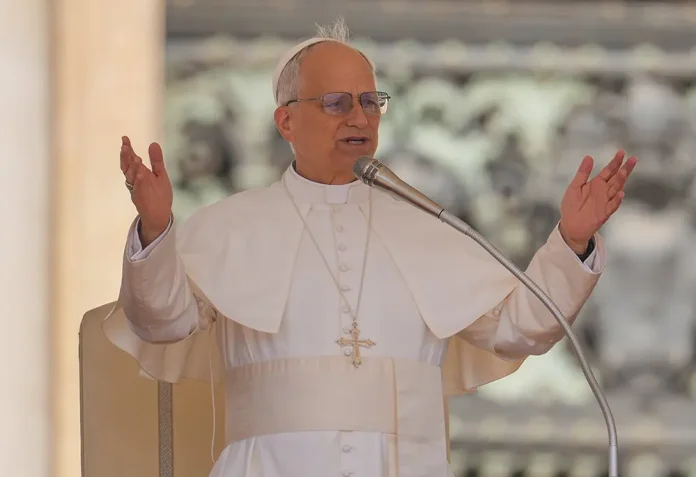Pope Leo XIV has delivered his strongest criticism yet of U.S. President Donald Trump’s administration, urging Americans to “reflect deeply” on how migrants are treated under Washington’s controversial mass deportation policy.
The U.S.-born pontiff, speaking from his papal retreat in Castel Gandolfo on Wednesday, expressed concern that many people who have lived peacefully in the United States “for years and years” have suffered deeply from recent immigration enforcement actions.
“Every Christian will ultimately be judged by how they welcomed the foreigner,” Pope Leo said, speaking in English to directly reach an American audience.
The comments mark a significant shift for the 68-year-old pontiff, who was elected earlier this year as the first American Pope in history.
Born Robert Prevost in Chicago, Pope Leo spent much of his early clerical life as a missionary in Peru, an experience observers say has shaped his empathy toward migrants and refugees.
In his remarks, the Pope also cautioned against U.S. military operations targeting suspected drug-smuggling vessels off Venezuela’s coast, warning that the bombings risk escalating tensions in the region.
“I think that with violence we won’t win,” he said in Italian. “The path to peace cannot be found through confrontation.”
Pope Leo’s latest comments are his clearest break yet from the Trump administration. His remarks follow an earlier statement in October, in which he described U.S. immigration raids as “inhuman,” unsettling conservative Catholics who had initially viewed him as an ally.
“Many American Catholics thought Pope Leo would be a political counterbalance to Pope Francis,” said Catholic historian Austen Ivereigh.
“But he’s now showing that his priorities, justice, compassion, and human dignity, are consistent with long-standing church teaching.”
Since his election in May, Pope Leo has met with senior U.S. officials, including Vice President JD Vance and Secretary of State Marco Rubio, but has avoided direct political confrontation.
His most recent statements, however, suggest a willingness to challenge U.S. policy when it conflicts with Catholic moral principles.
In a major papal document published last month, Pope Leo reaffirmed that poverty, migration, and human dignity would remain central to his papacy. He reiterated those priorities during a meeting with American bishops, stating the church’s long-standing call to protect family unity and ensure spiritual care for migrants.
When asked about reports that detainees at an immigration facility near Chicago had been denied access to communion, the Pope said, “I would certainly invite the authorities to allow pastoral workers to attend to the needs of those people.”
Analysts say Pope Leo’s growing openness, including his decision to meet journalists regularly at Castel Gandolfo, a tradition abandoned by his predecessor, reflects a broader effort to bring transparency and accessibility to the papacy.
“With these remarks, Pope Leo is taking a bold step,” Ivereigh noted. “He’s no longer avoiding the political implications of moral leadership. This time, he’s willing to confront the Trump administration head-on.”





